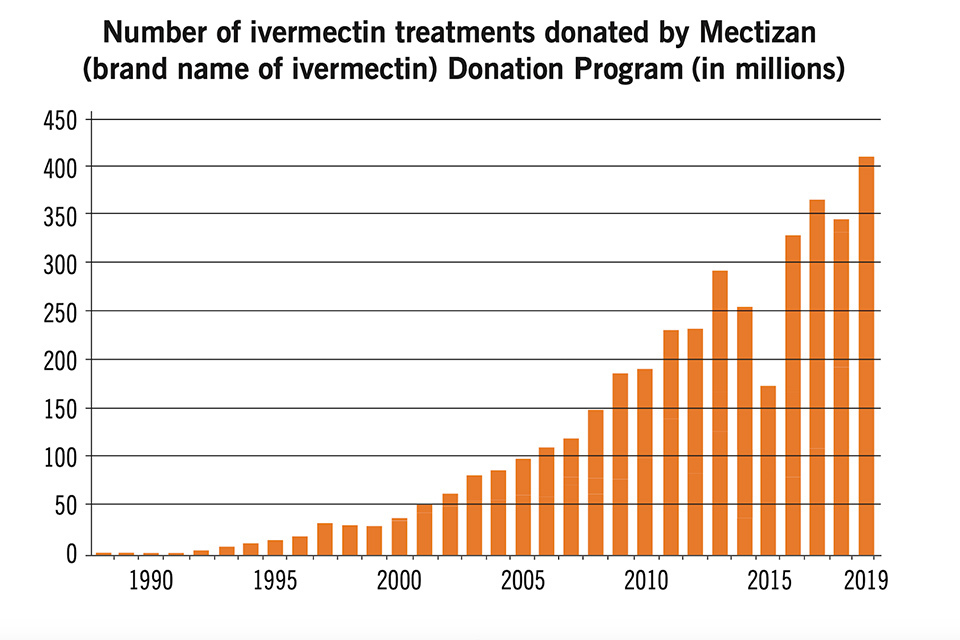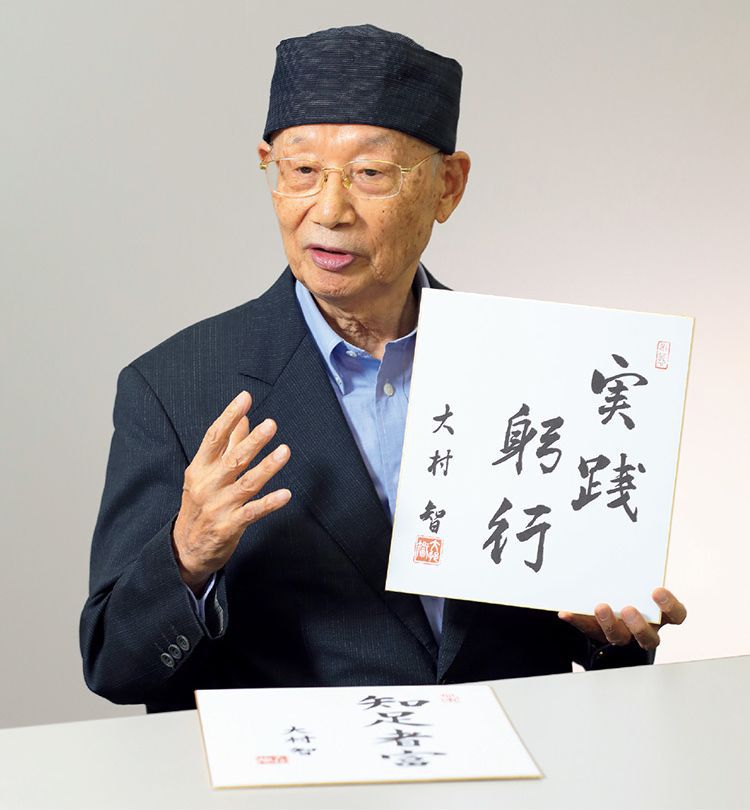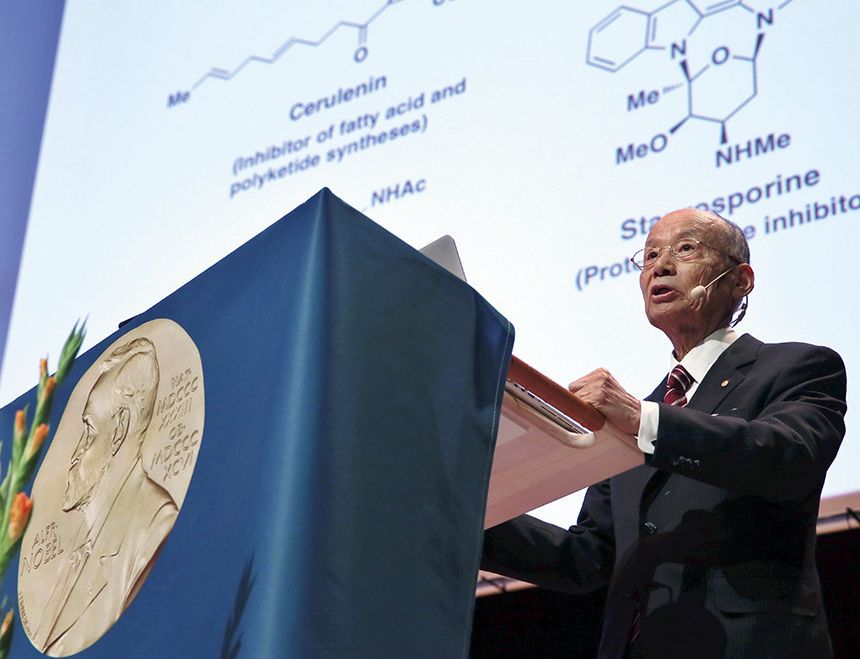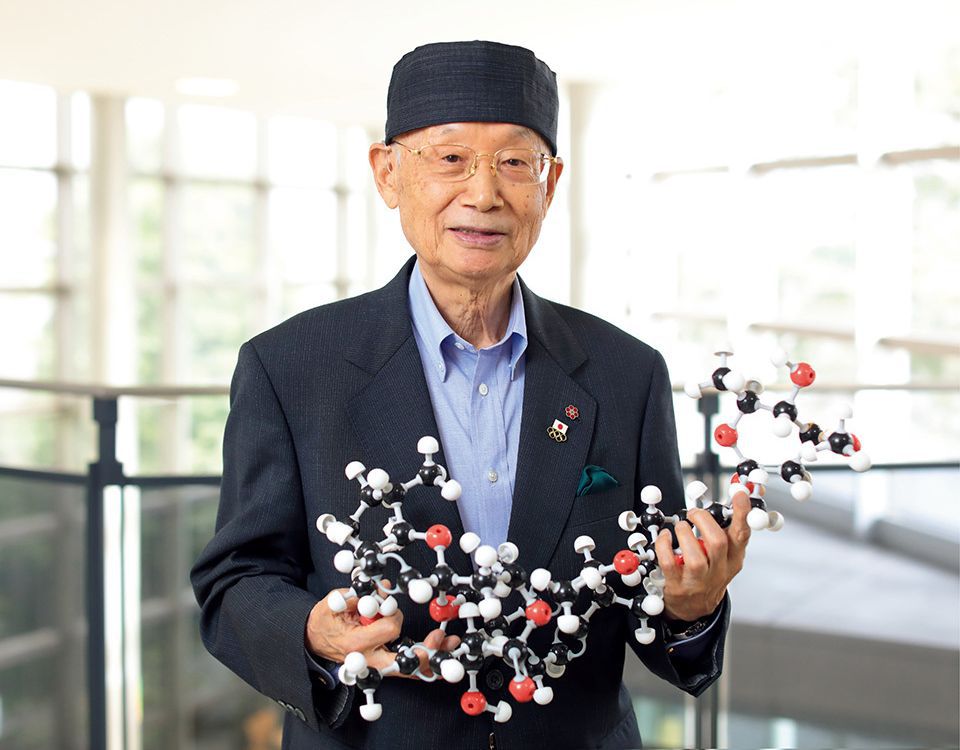The world is in the midst of its battle against COVID-19. Japan has an admirable record in research on infectious diseases, such as the discoveries of the plague bacillus (Yersinia pestis) and Shigella. What is the spirit of Japanese research that lives today in Nobel Laureate ŌMURA Satoshi that motivated him to develop anti-parasitic drugs?
Parasites, bacteria, and viruses —human beings have always had to face infections caused by numerous different pathogens. The newest to strike, COVID-19, is just one example of these infections, and the world is now racing to develop drugs to combat this disease. In the long fight against infectious diseases, Japanese researchers have often scored great achievements. In 1889, KITASATO Shibasaburo, the founder of The Kitasato Institute, was the first person ever in the world to grow the tetanus bacillus in pure culture. He discovered the antibodies that fight this toxin and established a serum therapy for tetanus. He is also one of the discoverers of the infectious agent of bubonic plague, contributing to the development of infectiology.
Other notable Japanese researchers include SHIGA Kiyoshi, for his discovery of Shigella, and UMEZAWA Hamao, who found kanamycin, an effective antibiotic against drug-resistant tuberculosis. Of all these researchers, one man has attracted particular attention in recent years; Professor ŌMURA Satoshi, winner of the 2015 Nobel Prize in Physiology or Medicine.
Up until now, Prof. Ōmura has discovered more than 500 compounds made by microorganisms, leading to the development of new drugs. He won his Nobel Prize (jointly awarded to William C. Campbell, a researcher at the Merck Institute for Therapeutic Research) for the discovery of the antibiotic avermectin and the development of the anti-parasitic drug, ivermectin, a derivative of avermectin. Ivermectin was produced from microorganisms isolated from a soil sample he collected. The drug has a remarkable effect, even in small quantities, and contributed greatly to increased food production when launched as an anti-parasitic for livestock.


Onchocerciasis, a major cause of blindness, is about to be eradicated through a large-scale ivermectin donation program. Receiving a warm welcome from children in Ghana.
Ivermectin was subsequently found to be effective against human diseases such as onchocerciasis (commonly known as river blindness), caused by nematodes, and lymphatic filariasis (commonly known as elephantiasis). These diseases were previously widespread and plagued people in Africa, Latin America and elsewhere. With the help of the World Health Organization’s (WHO) donation program, which Merck & Co. Inc. and The Kitasato Institute assist with, today ivermectin reaches 400 million people a year. These diseases have already been eradicated in some countries. Ivermectin is used as a treatment for strongyloidiasis and scabies and has also been reported to inhibit the growth of certain viruses such as HIV and dengue fever. While it is necessary for the virus to enter the nucleus of the parasite’s cells in order to multiply, in vitro experiments have shown that ivermectin inhibits the function of substances that carry the virus into the nucleus. With this as the case, the same effect may be shown on the currently rampant novel coronavirus.
So how has Japan been able to make such great strides in the field of infectious diseases? Prof. Ōmura cites the country’s “altruistic spirit” as one reason. “The character of the Japanese people is that they naturally want to do something for others. Japan has suffered from frequent natural disasters such as earthquakes and typhoons, but I think that those who have survived such ordeals have learned the importance of cooperating with each other.”
Demonstrating this altruistic spirit, many Japanese researchers are currently working hard to develop drugs for COVID-19. At Kitasato University, where Prof. Ōmura is a distinguished emeritus professor, a project has already begun for the early discovery of therapeutic drugs. In this project, the Institute plans to implement a large-scale screening of existing drugs, including ivermectin.
“There are still many infectious diseases left in the world that affect the most vulnerable in society. We must work together to combat these diseases. It is not ambition for success but desire to help people that is important,” he says.
There is no end to the road of research into infections. Japanese scientists will hold onto their passion for the exploration of infectious diseases, a research spirit that has been passed down by their predecessors. They will continue their fight to save people blighted by such diseases.

Prof. Ōmura’s motto is “jissen-kyuko (実践躬行),” which means to follow one’s principles. Accordingly, he has been pursuing his interests across many fields. In fact, he is a man of action, who even by himself persuaded pharmaceuticals to develop new drugs. He is shown here holding the motto written in his own hand.

At the 2015 Nobel Prize Memorial Lecture. Prof. Ōmura continued his persistent research into antibiotics for livestock, something that had received little attention as a subject of research, and that led to the development of ivermectin.

































